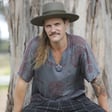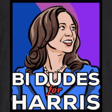
The Evolving Use of the Word "Bisexual" with Mark Wilkinson
Follow Mark Wilkinson on Twitter: https://twitter.com/MarkJoseph_82
Follow Mark Wilkinson on Instagram: https://www.instagram.com/markjoseph82/
Mark's "Bisexual Oysters" paper: https://journals.sagepub.com/doi/abs/10.1177/1750481318817624
Two Bi Guys is now sponsored by Zencastr! You can get 30% off Zencastr for 3 months with promo code: twobiguys -- or just click this link: https://zencastr.com/pricing?coupon=twobiguys&fpr=ex42o. Start recording your own podcast or meetings today!
This episode is also sponsored by Vinovest. Discover wine investing with Vinovest -- get 2 months of fee-free wine investing with this offer link: zen.ai/twobiguys
Though the bisexual/fluid community has always existed, the word "bisexual" has evolved significantly in popular usage over the last 60 years. Mark Wilkinson, a PhD candidate at Lancaster University, has been studying media representation of the LGBT+ community and the discursive construction of identity & community, using linguistics to understand how queer people identify themselves over the years -- and how others identify our community in the press.
In part one of this two part interview, we discussed Mark's paper, "Bisexual Oysters", which analyzes how the word "bisexual" was used in The Times (of London) over the past six decades. In the 50s, 60s, and 70s, it was not used nearly as much as today, and it often did not describe sexuality but rather other aspects of gender or presentation, as well as androgyny, "co-ed" spaces, or "unisex" objects. Mark also discusses the prevalence of fictional characters as opposed to real people being described as "bisexual", contributing to bi erasure and invisibility. We also chatted about when and why these semantics are important -- especially to unite in solidarity for political purposes -- and when and why it's important to remember that "bisexuality" is not a universal identity across time and space, but rather a discursive construction that emerged at a particular time, location, and moment in our culture.
Stay tuned for part two which continues tracking the use of the word "bisexual" in the 1980s through 2017, how the word grew in usage during the HIV/AIDS epidemic (with unfortunate consequences), and some history of the term "LGBT" and how the B has historically fit in (or not).
Two Bi Guys is produced and edited by Rob Cohen
Created by Rob Cohen and Alex Boyd
Logo art by Kaitlin Weinman
Music by Ross Mintzer
We are supported by The Gotham



















